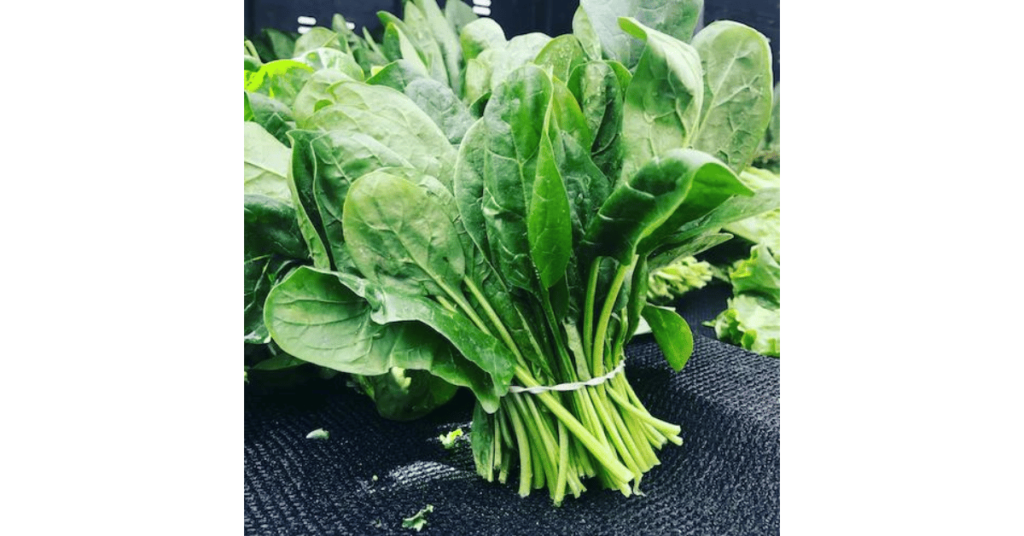Whole Food Plant-Based Diet (WFPB) For Weight Loss.

Introduction
Are you one of those who resolves to lose weight every year?
You are not alone.
Many people go on a diet to lose weight and dismally fail. Is there perhaps a solution to this vicious cycle of weight loss?
Will I lose weight on a whole foods plant-based diet?
These questions need answers, especially in an increased prevalence of obesity and chronic diseases.
Scientific evidence shows that a plant-based diet for weight loss is an option.
But wait. What are we talking about here?
This article delves into various benefits of a whole food plant-based diet for weight loss.
It would discuss how to lose weight on a whole food plant-based diet. How this type of diet can help in reducing calorie intake and increasing nutrient density,
The article will further look at plant-based nutrition and traditional approaches to weight loss. And how can a whole food plant-based diet promote sustainable weight loss?
What Consists a Whole Food Plant-Based (WFPB) Diet?
And a whole food plant-based diet is on whole, minimally processed plants. Plants such as nuts, legumes, vegetables, fruits, whole grains, and seeds.
But, a vegan diet differs in critical areas. Veganism and WFPB avoid eating all animal products, including poultry, fish, meat, dairy, and eggs.
A whole food, plant-based diet operates on the belief that processing robs food of its vital nutrients.
Further, those who are on a whole food plant-based diet do not consume any oil, processed sugar, processed grains, and processed salt.
Whole food plant-based diet contains minimally processed or not processed foods. Health consciousness is the premise for the whole food plant-based.
A whole food plant-based diet follows these principles.
Whole foods are crucial and are natural foods, not processed.
Plant-based in that WFPB foods come from plants and are free from animal ingredients.
When eating a whole food plant-based diet, it will consist of five food groups, including herbs and spices for seasoning.
- Fruits: apples, bananas, grapes, strawberries, citrus fruits, etc.
- Vegetables: peppers, lettuce, spinach, kale, peas, etc.
- Tubers: Starchy root vegetables like yams, potatoes, and sweet potatoes.
- Whole grains: Grains, cereals, and other starches in entire form, such as bulgur, quinoa, brown rice, wholewheat, oats, and others.
- Legumes: Various beans, lentils, pulses, and others.
Besides these foods, there are more calorie-dense foods included in the WFPB lifestyle. Foods include nuts, seeds, avocados, tofu, tempeh, whole grain flowers and bread, and plant-based milk. Eat these foods in moderation because they contribute to weight gain.
Can You Lose Weight on a WFPB Diet?
Studies show that a whole food plant-based diet can be effective in losing weight and improving overall health.
The Impact of Calorie Density
Calorie density is the number of calories per unit volume for a given amount of food.
Calories are not equal. What we mean is that when you eat food with oil, you’ll be consuming increased calories. But when you eat food without fat, your intake of calories will be lower.
Oil has a high-calorie density and concentration compared to fruits like berries.
What influences calorie density is water content. Food with high water content has low-calorie density.
How does calorie density impact on weight loss?
Consuming foods with high-calorie density will increase your weight.
It is critical to eat food with low-calorie density.
Plant-based foods have a lower calorie content than processed foods and animal products. Plant-based foods make it easier to maintain a calorie deficit for weight loss.
Eating food with high-calorie concentration does not mean getting the nutrients you need.
Whole plant foods have lower-calorie content than processed foods and animal products.
Fruits and vegetables give vitamins and minerals but are relatively low in calories, making them a staple of a WFPB diet.
WFPB foods are rich in nutrients, ensuring you get the nutrition your body needs while losing weight.
A 2020 systemic review shows that food rich in nutrient composition and energy content provides health benefits. Benefits for weight management and type 2 diabetes.
Foods with High Fibre Content
Research on fighting obesity shows that higher dietary fibre intake impacts weight loss.
Eating fibre-rich foods –structurally intact plant foods, not processed helps in weight loss. Foods that have high fibre content are whole foods plant-based.
Indeed, whole plant foods are rich in dietary fibre, which offers several benefits for weight loss.
Fibre helps you feel full and satisfied, reducing overeating. It also stabilises blood sugar levels, reducing cravings for high-calorie, low-nutrient foods.
Reduced Fat Intake
Research shows individuals must reduce saturated fat and reduce the use of trans fat. Reducing saturated fat is an excellent nutritional approach.
If you attempt to lose weight, it can be beneficial to watch your fat intake. When you limit or stop your use of oils or fats entirely, it will help reduce your calorie intake to lose weight.
Eating a whole food plant-based diet is vital in good health and a healthy approach to weight loss.
Foods That Encourage Weight Loss
In pursuing weight loss, many individuals take a low-carb approach or counting calories.
Unfortunately, this approach disappointed many in their weight management.
Are there foods that can enhance weight loss?
Has it ever occurred to you that vinegar plays a vital role in weight loss?
Apple Cider Vinegar and AMPK

Pexels/Ehioma Osih
The unveiling of 5’ AMP-activated protein kinase (AMPK) changed weight loss management. The enzyme comes alive in you when exercising or fasting.
Is there any food that can activate this enzyme?
Apple cider vinegar is an accessible food to activate AMPK.
When the acetic acid in vinegar undergoes absorption and metabolise, a natural AMPK boost results.
When you prepare your salad, add 10 ml (2 teaspoons) of apple cider vinegar to speed up weight loss.
Spices Facilitating Weight Loss
Spices Facilitating Weight Loss
Evidence shows cayenne pepper and ground ginger speed up weight loss.
Consuming cayenne pepper also accelerates lipolysis. Lipolysis is a metabolic process of breaking down fats and other lipids. This process is through hydrolysis to release fatty acids.
Black cumin spice is a weight loss booster.

iStock/Rouzes
Black cumin improves cholesterol and triglyceride levels, blood pressure, and blood sugar control. It can also accelerate the loss of body fat.
Leafy Greens

Eat your leafy greens, and you will not regret it.
Leafy greens have low-calorie content and are high in nutrients like calcium, magnesium, and folate.
Kale and spinach are green and contain thylakoids. Thylakoids are a compound found in leafy greens, helping to fight cravings for unhealthy foods. They also offer a natural fat-blocking effect.
When you consume thylakoids, the green leaves in kale are not digested immediately. As they remain in your intestines, they can bind to lipase, the enzyme the body uses to digest triglyceride.
This process of binding the enzyme helps slow fat absorption in your body.
The Power of Your Gut Flora
Your gut flora is vital in providing you with vitamins and other nutrients significant to your health.
The microbiome interacts with fibre that is undigested in the small intestine.
Fibre functions on microbiota-accessible carbohydrates (MACs). MACs are also known as prebiotics. Indeed, our good gut flora eats fibre.
What happens in your gut is you feed fibre to your good bacteria. This process, in turn, makes short-chain fatty acids that then get absorbed and flow with your blood.
These fatty acids move throughout the body and reach the brain. In that way, the gut flora sends signals of being full, thus reducing the appetite. These brain signals increase the lipolysis and increase the metabolic rate.
Your gut flora interaction with your brain thus helps in weight loss.
Meal Planning
Plan your meals. Do not just eat anytime you want to. Remember, it is not only what we eat but how and when.
Research shows that calories consumed at breakfast are less fattening than the number of calories eaten at dinner.
Hence, more weight loss is achieved with a diet with a larger breakfast than a more extensive dinner.
Plant-Based Nutrition vs Traditional Approach to Weight Loss
Approximately 90 per cent of individuals tried losing weight without success. You can lose a few kilograms, but the weight comes back.
What is the solution to this weight loss dilemma?
A critical difference between plant-based nutrition and more traditional approaches to weight loss. It is that the former encourages you to eat as much as you can without portion control and calorie counting.
The strategy is to improve food quality and not restrict its quantity.
Traditional weight-loss diets focus on decreasing portions. However, consuming fewer calories can leave individuals hungry and unsatisfied.
Thus, a more practical approach may be to shift the emphasis from restriction, which has a negative connotation. And move to a more positive message of eating healthier, low-calorie-density foods.
With enough portion control or physical exertion, you can lose any weight.
But what is the most effective weight-loss strategy, not calorie counting?
In evidence-based studies published in the peer-reviewed medical literature, the conclusion is that the single most successful weight-loss strategy is a whole-food, plant-based diet.
Conclusion
In conclusion, the evidence supports the effectiveness of a whole food plant-based diet (WFPB) for weight loss.
Many studies show you must embrace foods rich in fruits and vegetables. And include whole grains, legumes, and nuts. This approach can lead to significant and sustainable weight loss. There are various reasons behind this success.
Firstly, whole plant foods are naturally low in calories and have a high fibre content. Thus, they provide a feeling of fullness while maintaining lower calorie intake.
This results in reduced overall consumption, a fundamental aspect of weight loss.
Moreover, the fibre content helps in digestion and promotes a healthy gut. Fibre content also prevents you from overeating by stabilising blood sugar levels.
Secondly, a plant-based diet is typically low in unhealthy fats and refined sugars.
Plant-based foods reduce the intake of empty calories. And promote the consumption of nutrient-dense foods.
This shift in food choices not only helps in shedding excess weight. It also improves health markers. This improvement reduces the risk of chronic diseases. Diseases such as heart disease, diabetes, and certain cancers.
In summary, the whole food plant-based (WFPB) diet offers a holistic approach to weight loss.
It not only addresses the issue of excess weight but also promotes health and well-being.
With its focus on nutrient-dense, low-calorie foods, it eliminates processed and unhealthy foods. This dietary approach stands as a scientifically proven and sustainable way to achieve and maintain a healthy weight.
Embracing a whole food plant-based (WFPB) diet is not just a choice for weight loss. It is a decision for a healthier, happier, and more fulfilling life.

2 thoughts on “Whole Food Plant-Based Diet (WFPB) For Weight Loss.”